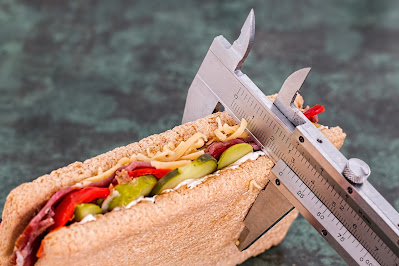Calorie deficit is indeed crucial for weight loss. It occurs when you consume fewer calories than your body needs for daily activities and basic bodily functions. When you consistently maintain a calorie deficit over time, your body will start utilizing stored fat as an energy source, leading to weight loss.
To successfully achieve a calorie deficit, you can follow these steps:
Determine your daily calorie needs: Calculate your Basal Metabolic Rate (BMR), which is the number of calories your body needs at rest, and then factor in your activity level using the Harris-Benedict equation or other methods. This will give you an estimate of your Total Daily Energy Expenditure (TDEE).
Set a calorie target: To create a calorie deficit, you need to consume fewer calories than your TDEE. Start by reducing your calorie intake by a moderate amount. Aim for a deficit of 500 to 1,000 calories per day, which is generally considered safe and sustainable for gradual weight loss.
Track your calorie intake: Monitor the number of calories you consume each day. Use food diaries, mobile apps, or online tools to track your meals and snacks. Be mindful of portion sizes, read food labels, and estimate calorie content when necessary. This awareness will help you make informed choices and stay within your target range.
Choose nutrient-dense foods: Focus on consuming whole, unprocessed foods that provide essential nutrients while being lower in calories. Include plenty of fruits, vegetables, lean proteins, whole grains, and healthy fats in your diet. These foods tend to be more filling, satisfying, and supportive of overall health.
Be mindful of liquid calories: Beverages such as soda, sugary juices, alcohol, and specialty coffees can contribute significant calories without providing much nutritional value. Opt for water, unsweetened tea, or black coffee instead. Cutting back on liquid calories can make a significant difference in your overall calorie intake.
Increase physical activity: In addition to adjusting your calorie intake, increasing your physical activity can help create a larger calorie deficit. Engage in regular exercise, such as cardio activities, strength training, or a combination of both. This will not only burn extra calories but also improve your overall fitness and well-being.
Monitor your progress: Regularly track your weight and body measurements to assess your progress. If you're not losing weight as expected, you may need to adjust your calorie intake or increase physical activity. Remember, weight loss is a gradual process, and it's important to be patient and consistent.
Seek professional guidance if needed: If you have specific dietary or health concerns, consider consulting a registered dietitian or healthcare professional. They can provide personalized advice and guidance based on your unique needs and circumstances.
Remember, weight loss should be approached in a balanced and sustainable manner. Extreme calorie deficits or crash diets can be detrimental to your health and lead to muscle loss, nutrient deficiencies, and a slowed metabolism. Aim for gradual and steady weight loss, typically 1-2 pounds per week, for long-term success and better overall well-being.
14 Day Belly Fat Loss Fitness Plan Is The Fastest Way To Lose Weight and Lose Belly Fat - Keep Fit, Be Full Of Energy, Look and Feel Younger With A Slim Flat Belly Using Belly Fat Burning Foods, Easy Workouts And Diets.
Sunday, May 14, 2023
Calorie Deficit Diet Is Crucial For Weight Loss
Subscribe to:
Post Comments (Atom)

No comments:
Post a Comment